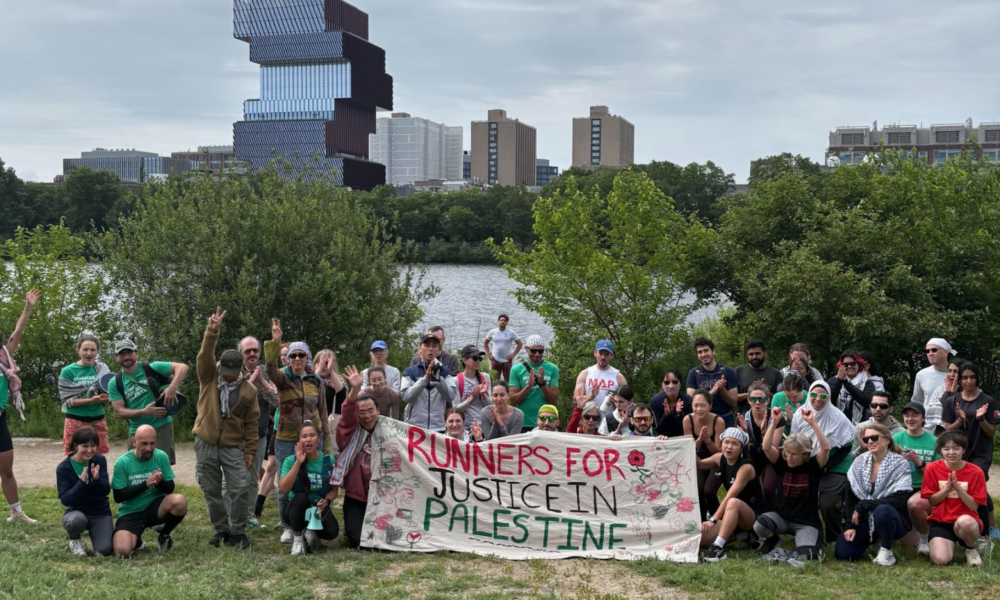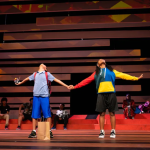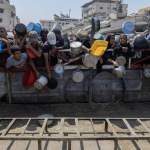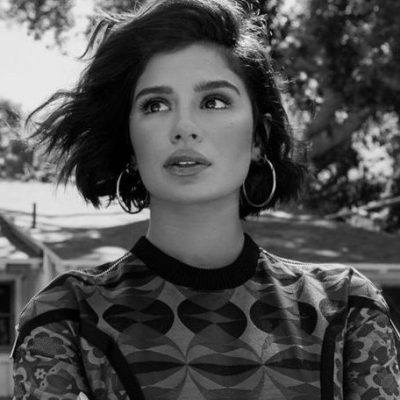A new chapter: A story of resilience and injustice
“Free, free Palestine!”
The chant echoed across the Charles River, reverberating to cars passing by. Heads turned as runners and walkers alike passed us in circle formation across the grass. Participants wore shirts repping Runners for Justice in Palestine and keffiyehs, a checkered Palestinian headscarf that symbolizes resilience.
“As we stand today, all of the Gaza population is at a critical stage of starvation. Almost the entire population is at a crisis level, and nearly half of the catastrophic events are irreversible conditions. Even if food is allowed to enter now, (which barely a scarce amount has), the damages caused by days and days of hunger, of children eating sand, of pure slow torture are irreversable forever.”
A shiny green megaphone amplifies one of the group leader’s voices as dozens of faces listen, nodding and humming along. “I leave us with these thoughts so that we are enraged, but that this rage fuels our actions. We will continue the movement.”
What started as two runners in February 2024, Ahmed Morad and one companion running for the injustice of the genocide has now blossomed into over a hundred runners confiding in the group. Every Sunday at 10 a.m. on 575 Memorial Drive, a large group of people get together to run as a protest against the larger oppressing powers. RJP is a national organization with locations in New York, Philadelphia, Los Angeles and one here in Boston. Runners come from all over New England, some making an hour-long drive from Maine to run with the group. Ranging from children at the age of three to those in their 70’s, RJP is open to everyone.
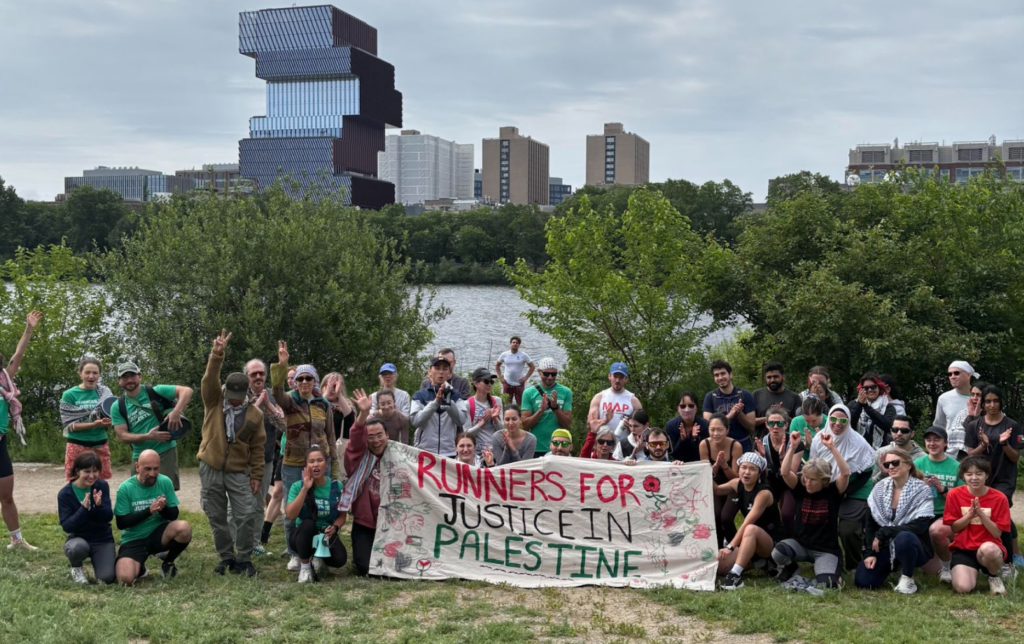
“We mostly get positive feedback, cars honking and cheering but there’s been some negative responses,” Another one of the organizers of the group explained, while going through safety protocol. “It’s best not to engage and ignore in those cases.”
Switching up their route every week, RJP ran into Harvard square on July 27, ready to make some noise. Accompanied with a drummer, strumming away in the middle of the group, voices soon filled the Cambridge streets.
“Up, up with liberation! Down, down with occupation!”
Chanting, clapping, drumming, yelling, the group weaved through the cobblestones. Many responses were reciprocated, an appreciative shout from pedestrians, cars honking, tourists filming and even a few joined in on the chanting, clapping and whooping.
It was a hard presence to ignore and the group fell into a rhythm like the beating of drums. “When you spend time moving together, conversing just being, just sharing these moments together, I think it strengthens your friendships together and your comradery.” A leader of the group who preferred to remain anonymous had said. And through the run, I was welcomed with open arms as various runners fell into pace with me, engaging me into curious conversation.
I had originally seen the large gathering running at the Charles, taking notice during my runs just as everyone who passed by would. In the dead of the winter and through the sweltering summer, I saw them run by until I joined myself.
We would regroup every once in a while, gathering around water fountains or waiting at stoplights.
“So it’s really refreshing that you know it started out as two people who had similar values. Values that Palestinians have the right to live in dignity and it just continued to grow to become a multi-racial, multi-ethnic, multi-generational movement that is really centered on the freedom of not just Palestinian people but really all oppressed people.” Said one of the runners.
At the end of the run there’s a community debrief and a bowl of watermelon is placed in the middle and as people indulge in the tasty treat, a group leader speaks into the megaphone. “Does anyone know why watermelon is a symbol of Palestine?”
During a ban of the flag in 1967, Palestinians used watermelon to bear the colors of the flag, red, white, green and black. And while the ban was lifted in 1993, it’s still a worldwide symbol of the country, resurging in 2023 during the Israeli attack.
After the group broke apart and departed, I was wrapped in a tight hug and other runners waved, telling me to come back next week.
“We run because no one is free until we are all free.”



